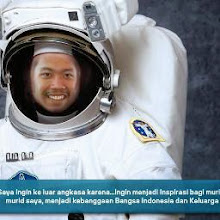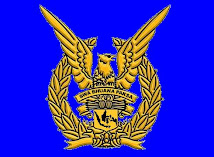James Edwin Webb (October 7, 1906 – March 27, 1992) was an
American government official who served as the second administrator of NASA from
February 14, 1961 to October 7, 1968.
Webb oversaw NASA from the beginning of the Kennedy administration
through the end of the Johnson administration, thus overseeing all the
critical first manned launches in the Mercury through Gemini programs,
until just before the first manned Apollo flight. He also dealt with the
Apollo 1 fire.
In 2002, a planned replacement for the Hubble Space Telescope Earth-orbiting astronomical
observatory, originally called the Next Generation Space Telescope
(NGST), was renamed the James Webb Space Telescope as a
tribute to Webb.
| James E. Webb | |
|---|---|
 |
|
| 2nd Administrator of the National Aeronautics and Space Administration | |
| In office February 14, 1961 – October 7, 1968 |
|
| President | John F. Kennedy Lyndon Johnson |
| Deputy | Hugh Latimer Dryden Robert Seamans Thomas O. Paine |
| Preceded by | T. Keith Glennan |
| Succeeded by | Thomas O. Paine |
| 16th Under Secretary of State | |
| In office January 28, 1949 – February 29, 1952 |
|
| President | Harry S. Truman |
| Preceded by | Robert A. Lovett |
| Succeeded by | David K. E. Bruce |
| 7th Director of the Bureau of the Budget | |
| In office July 13, 1946 – January 27, 1949 |
|
| President | Harry S. Truman |
| Preceded by | Harold D. Smith |
| Succeeded by | Frank Pace |
| Personal details | |
| Born | James Edwin Webb October 7, 1906 Tally Ho, North Carolina United States |
| Died | March 27, 1992 (aged 85) Washington, District of Columbia United States |
| Resting place | Arlington National Cemetery |
| Nationality | USA |
| Political party | Democratic |
| Alma mater | University of North
Carolina at Chapel Hill, B.A. George Washington University Law School, J.D. |
| Occupation | Politician and bureaucrat |
| Military service | |
| Allegiance | |
| Service/branch | United States Marine Corps |
| Years of service | 1930–1932, 1944 – 1945 |
| Rank | Lieutenant Colonel |
Biography
Early years
Webb was born in the hamlet of Tally Ho in Granville County, North
Carolina. His father was superintendent of the Granville County
public schools.
He completed his college education at the University of North
Carolina at Chapel Hill, where he received an A.B. degree in education in 1928. He was a member of the Acacia Fraternity. Webb became a second lieutenant in the United States Marine Corps, and
he served as a Marine Corps pilot on active duty in 1930–32. Webb then
studied law at the The
George Washington University Law School where he received a J.D.
degree in 1936. In the same year he was admitted to the Bar
of the District of Columbia.
Career
Webb enjoyed a long career in public service in Washington, D.C.,
first serving as a secretary to US Rep. Edward
W. Pou of North Carolina in 1932–34. He next served as
an assistant in the office of O. Max Gardner, an attorney and former governor of North
Carolina, in 1934–36. In 1936, Webb became the personnel director, the
secretary-treasurer, and later the vice president of the Sperry Gyroscope
Company in Brooklyn, New York, before he re-entered the Marine
Corps in 1944 during World War II.
After World War II, Webb returned to Washington and served as
executive assistant to O. Max Gardner, by then an undersecretary in the U.S.
Department of the Treasury, before being named as the director of
the Bureau of the Budget in the Office
of the President of the United States, a position that he held until
1949. President Harry S. Truman next nominated Webb to serve
as an undersecretary of state in the U.S. Department of State.
Serving as Undersecretary of State during the Era
of McCarthy, Webb was instrumental in implementing stringent
personnel requirements intended to prevent suspected anarchists,
communists and homosexuals from employment with the Department of State.
Webb singled out homosexuals in a later report, noting "It is generally
believed that those who engage in overt acts of perversion lack the
emotional stability of normal persons."When the Truman administration ended in January 1953, Webb left
Washington for a position in the Kerr-McGee
Oil Corp. in Oklahoma City, but he was still active in
government circles, for instance serving on the Draper Committee in 1958.
NASA

Webb presents NASA's Group Achievement Award to Kennedy Space Center Director Kurt
H. Debus, while Werner von Braun (center) looks on.
Webb returned to Washington in 1961 when he accepted the position of
the Administrator of NASA.
Under his direction, the agency undertook to achieve the goal set by
President John F. Kennedy of landing an American on
the Moon before the end of the 1960s through the Apollo program.

Webb, Vice President Lyndon Johnson, Kurt Debus, and
President John F. Kennedy receive a briefing on Saturn I
launch operations during a tour of Launch Complex 34, September 1962.
For seven years after Kennedy's May 25, 1961, announcement of the
goal of a manned lunar landing, through October 1968, Webb lobbied for
support for NASA in Congress. As a longtime Washington insider, and with
the backing of President Lyndon B. Johnson, he was able to produce continued support
for and resources for Apollo.
During his administration, NASA developed from a loose collection of
research centers into a coordinated organization. Webb had a key role in
creating the Manned Spacecraft Center, later, the Johnson Space Center, in Houston,
Texas. Despite the pressures to focus on the Apollo program, Webb
ensured that NASA carried out a program of planetary exploration with
the Mariner and Pioneer space programs.
After the Apollo 1 accident in 1967, Webb told the media,
"We've always known that something like this was going to happen sooner
or later. ... Who would have thought that the first tragedy would be on
the ground?" Webb went to President Johnson and asked that NASA be
allowed to handle the accident investigation, and to direct its
recovery. He promised to be truthful in assessing blame, and he pledged
to assign that to himself and NASA management, as appropriate. The
agency set out to discover the details of the tragedy, to correct
problems, and to continue progress toward the Apollo
11 lunar landing.
Webb reported his investigation's findings to various congressional
committees, and he took a personal grilling at nearly every meeting.
Whether by happenstance or by design, Webb managed to deflect some of
the backlash over the accident away from both NASA as an agency and from
the Johnson administration. As a result, NASA's image and popular
support were largely undamaged.
However, Webb was a Democrat tied closely to Johnson, and, with
Johnson choosing not to run for reelection, he decided to step down as
administrator to allow the next president to choose his own
administrator.
Webb was informed by CIA sources in 1968 that the Soviet
Union was developing its own heavy N1 rocket for a manned lunar mission, and he
directed NASA to prepare Apollo 8 for a possible lunar orbital mission that
year. At the time Webb's assertions about the Soviet Union's abilities
were doubted by some people, and the N-1 was dubbed "Webb's Giant".
However later revelations about the Soviet Moonshot – after the collapse
of the USSR – have given support to Webb's conclusion.
Webb left NASA in October 1968, just before the first manned flight in
the Apollo program.
In 1969, Webb was presented with the Presidential Medal of Freedom
by President Johnson. He is a 1976 recipient of the Langley Gold Medal from the Smithsonian Institution.
Sumber: Wikipedia























